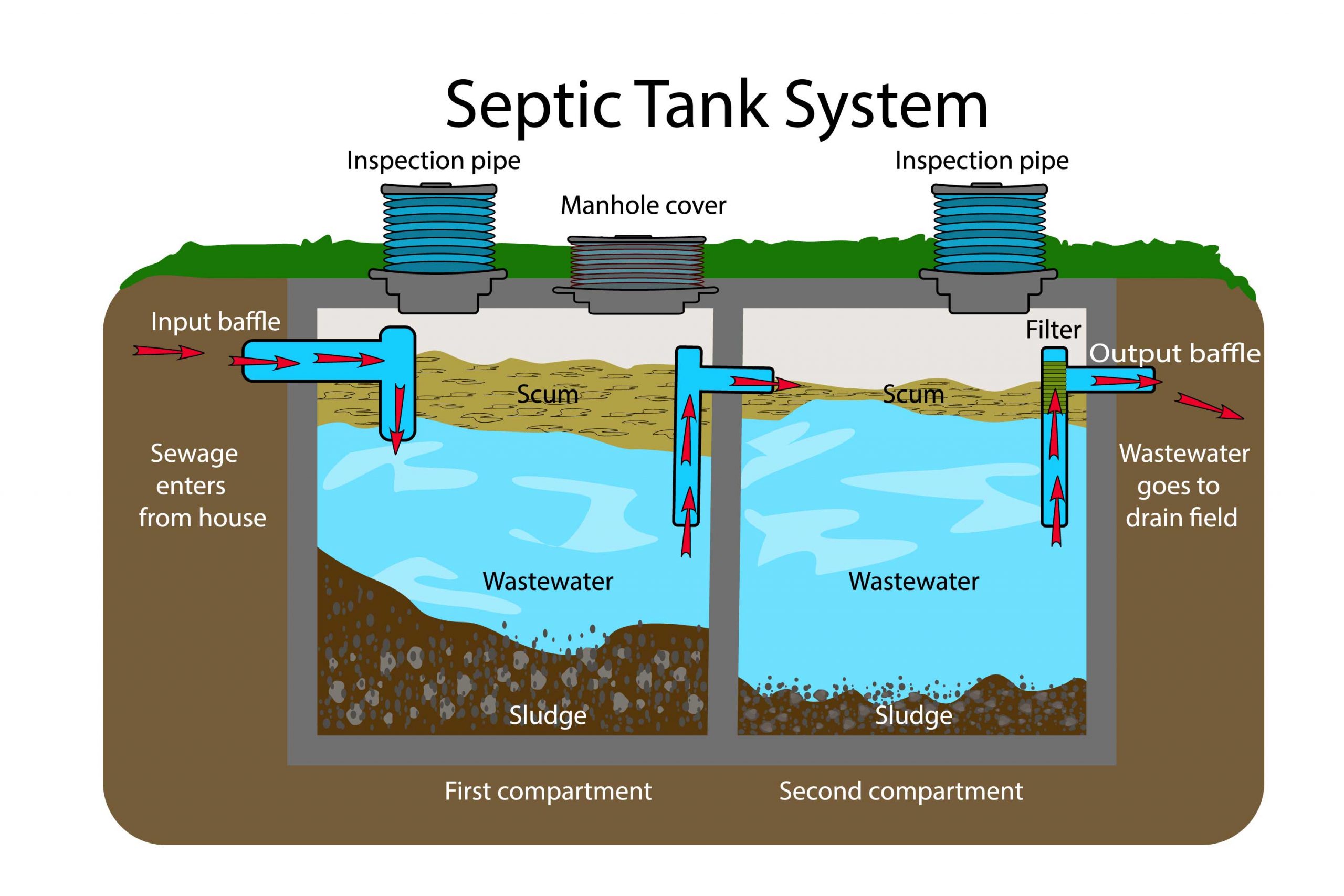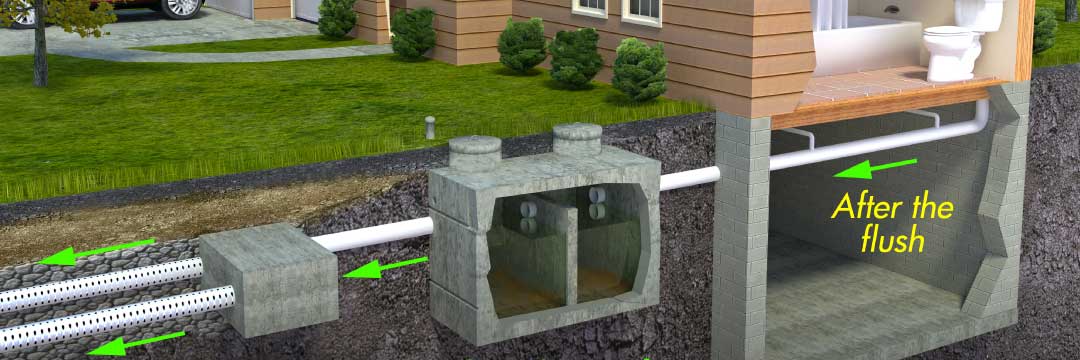Septic System Maintenance
Let’s talk for a minute about routine maintenance for your vehicle. (Wait, don’t go! You’re in the right place.) We all know that our vehicles need proper and regular maintenance to run well and prevent mechanical failure. One of the most important pieces of maintenance for your car is the simple but life-extending oil change. Now, you might be tempted to skip an oil change or two, or just wait longer than the recommended time, because hey, the engine sounds fine! Why spend $50-100 on an oil change?
However, even though your vehicle seems just fine without that last oil change, underneath the hood, that old oil is causing extra wear and tear on your engine. Eventually, with enough neglect, that poor engine is going to give up! It might even leave you stranded on the side of the road, in need of a costly rebuild.
What does this have to do with the septic tank buried out of sight, out of mind somewhere in your yard? Well, it’s simple: just like your vehicle needs routine oil changes every 3-5k miles, your septic system needs a pump out and inspection every 3-5 years for proper maintenance. If you skip septic maintenance, you might not notice a problem at first—or even for a long time. Unfortunately, with cars and septic systems, by the time you see (or smell) the problem, it’s likely been brewing for a long time.
Let’s look at how the septic tank works.

The tank’s job is to catch and hold waste solids (sludge) while allowing liquid wastewater (effluent) to pass through and enter the leach or drain field. Over time and with use, the sludge level in the tank will rise and, if not pumped out, flow out of the tank into the leach system. Because leach systems are not made to handle sludge, this overflow will clog the leach system and render it ineffective.
Sludge and solids could also leave the septic tank via a missing or deteriorating tank baffle. When working correctly, the outlet baffle on a septic tank holds sludge and scum in while allowing liquids (effluent) out. Tank baffles are part of the tank and generally made of concrete in concrete tanks. Concrete tank baffles begin to deteriorate within 10-15 years, and often sooner, so they need regular inspection. If the concrete baffle has already been replaced by a PVC baffle tee with an effluent filter, then the filter will need regular cleaning and maintenance. A clogged filter will not allow wastewater out of the tank into the leach system, and if that happens, the result could be a backup into the house.
Clearly none of these scenarios are ideal! By the time you notice a mushy dark spot in the yard or a foul stench coming from the basement, your septic system may be in trouble. A simple pump out and baffle inspection may not be enough at this point; the septic system will likely need some form of remedial action to fix the cause of the problem.
The good news is, these kinds of septic problems develop relatively slowly over a period of time, and with regular maintenance, they can be fixed before they become serious threats to your property.
So, just like your car, your septic system needs regular maintenance to work properly and to reach its lifespan. Don’t delay! Call Joe and schedule an inspection and pump out today.
(And maybe it’s time to get that vehicle in for an oil change, too.)

